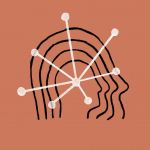OpenAI allocates $50 million for research grants

OpenAI has announced the launch of a new consortium, NextGenAI, which will focus on supporting research using artificial intelligence at leading universities worldwide. The initiative, announced on Monday, March 4, 2025, provides for the allocation of $50 million for research grants, computing resources, and access to the OpenAI API.
The consortium includes 15 founding academic partners, including prestigious institutions such as Harvard University, Oxford University, and the Massachusetts Institute of Technology (MIT). According to the company’s statement, students, faculty, and researchers will be eligible for grants, and funds will be distributed over the coming months.
“This initiative was created not only to stimulate the next generation of discoveries but also to prepare a new generation of specialists who will shape the future of artificial intelligence,” OpenAI’s official blog states. “NextGenAI is designed to support the scientist seeking a cure, the researcher revealing new ideas, and the student mastering artificial intelligence for the world of the future […] As we gain experience, we will explore opportunities to expand the reach and impact of this initiative.”
The program, which OpenAI positions as an expanded commitment to the educational community, is a logical continuation of the ChatGPT Edu product for universities launched in May last year. Notably, the announcement came at a critical moment for artificial intelligence research grants in the United States.
Reports indicate that in recent weeks, the Trump administration has dismissed several employees of the National Science Foundation (NSF) who were specifically selected for their expertise in artificial intelligence. These personnel decisions may jeopardize the agency’s ability to support key research in the AI field.
In the context of reduced government funding, OpenAI’s initiative takes on special significance for the academic community. NextGenAI could become an important resource for university researchers working on breakthrough technologies and innovations in artificial intelligence.
Experts note that the formation of such consortia reflects an important trend: technology companies are increasingly involved in funding fundamental science, which is transforming traditional models of academic research and creating new challenges and opportunities for the scientific community.





